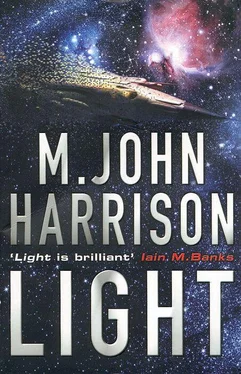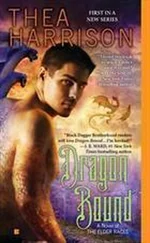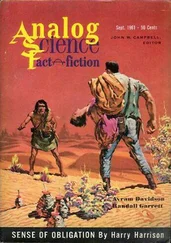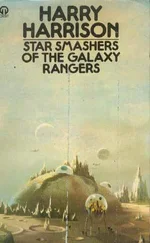'Oh yes,' said Anna. 'I bet you were.'
They were sitting in a restaurant on the edge of Fulton Market. Six hours in the air had made her as difficult as a child. 'You should always tell the truth,' she said, giving him one of the haggard, brilliant smiles which had captivated him so when they were both twenty. They had had to wait four hours for a flight. She had dozed for much of the journey, then woken tired and fractious. Kearney wondered what he would do with her in New York. He wondered why he had agreed to let her come.
'What were you really thinking?'
'I was wondering how to get rid of you,' Kearney said.
She laughed and touched his arm.
'That's not enough of a joke, really, is it?'
'Of course it is,' Kearney said. 'Look!'
A steam-pipe had broken in some ancient central heating system beneath the road. Smoke rose from the pavement on the corner of Fulton Street. The tarmac was melting. It was a common sight, but Anna, delighted, clutched Kearney's arm. 'We're inside a Tom Waits song,' she exclaimed. The more brilliant her smile, the closer she always seemed to disaster. Kearney shook his head. After a moment, he took out the leather bag that contained the Shrander's dice. He undid the drawstring and let the dice fall into his hand. Anna stopped smiling and gave him a bleak look. She straightened her long legs and leaned back away from him in her chair.
'If you throw those things here,' she said, 'I'll leave you to it. I'll leave you on your own.'
This should have seemed less like a threat than it did.
Kearney considered her, then the steaming street. 'I can't feel it near me,' he admitted. 'For once. Perhaps I won't need them.' He put the dice slowly back in the bag. 'In Grove Park,' he said, 'in your flat, in the room where I kept my things, there were chalk marks on the wall above the green chest of drawers. Tell me why you washed them off.'
'How would I know?' she said indifferently. 'Perhaps I was sick of looking at them. Perhaps I thought it was high time. Michael, what are we doing here?'
Kearney laughed. 'I've got no idea,' he said.
He had run three thousand miles, and now the fear was abating he had no idea why he had come here rather than anywhere else.
Later the same afternoon they moved into the apartment of a friend of his in Morningside Heights. The first thing Kearney did there was telephone Brian Tate in London. When there was no answer from the research suite, he tried Tate's house. It was the answer service there, too. Kearney put the phone down and rubbed his face nervously.
Over the next few days, he bought new clothes at Daffy's, books at Barnes Noble, and a laptop from a cheap outlet near Union Square. Anna shopped too. They visited Mary Boone's gallery, and the medieval Cuxa Cloister at the Metropolitan Museum of Art's branch in Fort Tryon Park. Anna was disappointed. 'I expected it to look older, somehow,' she said. 'More used.' When they ran out of other things to do they sat drinking New Amsterdam beer at the West End Gate. In the brown heat of the apartment at night, Anna sighed and walked about fractiously, dressing and undressing.
Billy Anker's location, as disclosed to Seria Mau by Uncle Zip, was several days down the Beach from Motel Splendido. Little would be required in the way of navigation until they encountered the complex gravitational shoals and corrosive particle winds of Radio Bay. Seria Mau checked her supercargo into the human quarters then found herself with nothing left to do. The White Cat's mathematics took over the ship and sent her to sleep. She was powerless to resist. Dreams and nightmares leaked up from inside her like warm tar.
Seria Mau's commonest dream was of a childhood. She supposed it to be her own. Oddly lit but nevertheless clear, the images in this dream came and went, framed like archaic photographs on a piano. There were people and events. There was a beautiful day. A pet animal. A boat. Laughter. It all came to nothing. There was a face close to hers, lips moving urgently, determined to tell her something she didn't want to hear. Something was trying to make itself known to her, the way a narrative tries to make itself known. The final image was this: a garden, darkened with laurel and close-set silver birch; and a family, centred on an attractive black-haired woman with round, frank brown eyes. Her smile was delighted and ironic at once-the smile of a lively student, rather surprised to find herself a mother. In front of her stood two children seven and ten years old, a girl and a boy, resembling her closely about the eyes; the boy had very black hair and was holding a kitten. And there, behind the three of them, with his hand on her shoulder and his face slightly out of focus, stood a man. Was he the father? How would Seria Mau know? It seemed very important. She stared as deeply into the photograph as she would stare into a face; while it faded slowly into a drifting grey smoke which made her eyes water.
A further dream followed, like a comment on the first:
Seria Mau was looking at a blank interior wall covered with ruched oyster silk. After some time, the upper body of a man bent itself slowly into the frame of the picture. He was tall and thin; dressed in a black tailcoat and starched white shirt. In one white-gloved hand he held a top hat by its brim; in the other a short ebony cane. His jet-black hair was brilliantined close to his head. He had eyes a penetrating light blue, and a black pencil moustache. It occurred to her that he was bowing. After a long while, when he had bent as much of his body into her field of vision as he could without actually stepping into it, he smiled at her. At this, the ruched silk background was replaced by a group of three arched windows opening on to the magisterial glare of the Kefahuchi Tract. The picture, she saw, was taken in a room toppling through space. Slowly, the man in the tailcoat bowed himself back out of it.
If this dream's purpose was to elucidate the one which had preceded it, nothing was achieved. Seria Mau woke up in her tank and experienced a moment of profound emptiness.
'I'm back,' she told the ship's mathematics angrily. 'Why do you send me there? What is the point of that?'
No answer.
The mathematics had woken her, relinquished control of the ship, and slipped quietly back up into its own space, where it began to sort the quanta leaking from significant navigational events in non-local space, using a technique called stochastic resonance. Without quite knowing why, Seria Mau was left feeling angry and inadequate. The mathematics could send her to sleep when it wanted to. It could wake her up when it wanted to. It was the centre of the ship in some way she could never be. She had no idea what it was, what it had been before K-tech webbed them together forever. The mathematics was wrapped around her-kind, patient, amiable, inhuman, as old as the halo. It would always look after her. But its motives were completely unknowable.
'Sometimes I hate you,' she advised it.
Honesty made her amend this. 'Sometimes I hate myself,' she was forced to admit.
Seria Mau had been seven years old the first time she saw a K-ship. Impressed despite herself by its purposeful lines, she cried excitedly, 'I don't want to have one of those. I want to be one.' She was a quiet child, already locked in confrontation with the forces inside her. 'Look. Look. ' Something took her and shook her like a rag; something-some feeling which would eventually marshal all of her other feelings- rippled through her. That was what she wanted then.
Now she had changed her mind, she was afraid it wastoo late. Uncle Zip's package taunted her with its promise, then delivered nothing. A sense of caution had led her to isolate it from the rest of the ship.
Читать дальше












